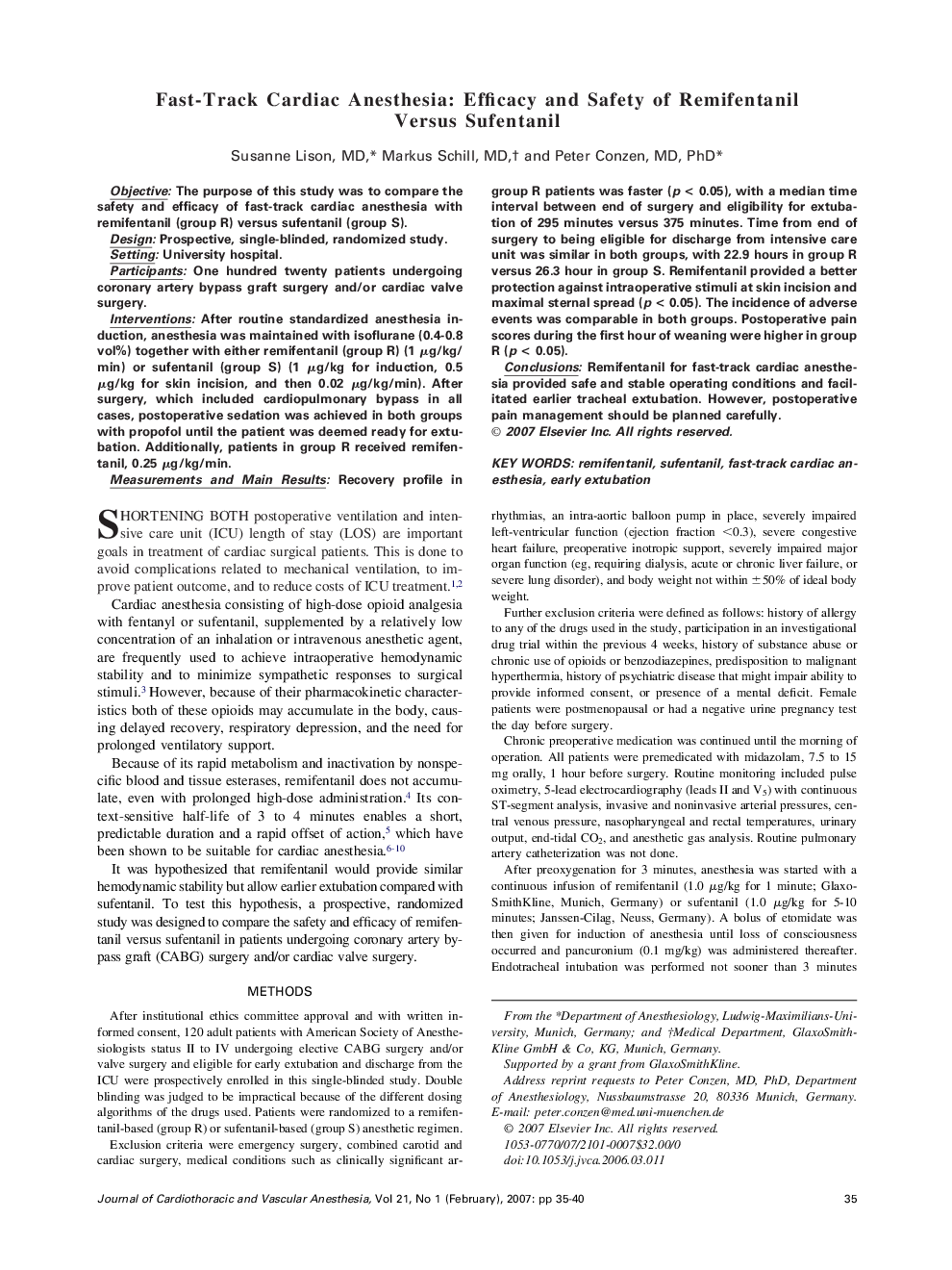| Article ID | Journal | Published Year | Pages | File Type |
|---|---|---|---|---|
| 2761474 | Journal of Cardiothoracic and Vascular Anesthesia | 2007 | 6 Pages |
Objective: The purpose of this study was to compare the safety and efficacy of fast-track cardiac anesthesia with remifentanil (group R) versus sufentanil (group S).Design: Prospective, single-blinded, randomized study.Setting: University hospital.Participants: One hundred twenty patients undergoing coronary artery bypass graft surgery and/or cardiac valve surgery.Interventions: After routine standardized anesthesia induction, anesthesia was maintained with isoflurane (0.4-0.8 vol%) together with either remifentanil (group R) (1 μg/kg/min) or sufentanil (group S) (1 μg/kg for induction, 0.5 μg/kg for skin incision, and then 0.02 μg/kg/min). After surgery, which included cardiopulmonary bypass in all cases, postoperative sedation was achieved in both groups with propofol until the patient was deemed ready for extubation. Additionally, patients in group R received remifentanil, 0.25 μg/kg/min.Measurements and Main Results: Recovery profile in group R patients was faster (p < 0.05), with a median time interval between end of surgery and eligibility for extubation of 295 minutes versus 375 minutes. Time from end of surgery to being eligible for discharge from intensive care unit was similar in both groups, with 22.9 hours in group R versus 26.3 hour in group S. Remifentanil provided a better protection against intraoperative stimuli at skin incision and maximal sternal spread (p < 0.05). The incidence of adverse events was comparable in both groups. Postoperative pain scores during the first hour of weaning were higher in group R (p < 0.05).Conclusions: Remifentanil for fast-track cardiac anesthesia provided safe and stable operating conditions and facilitated earlier tracheal extubation. However, postoperative pain management should be planned carefully.
